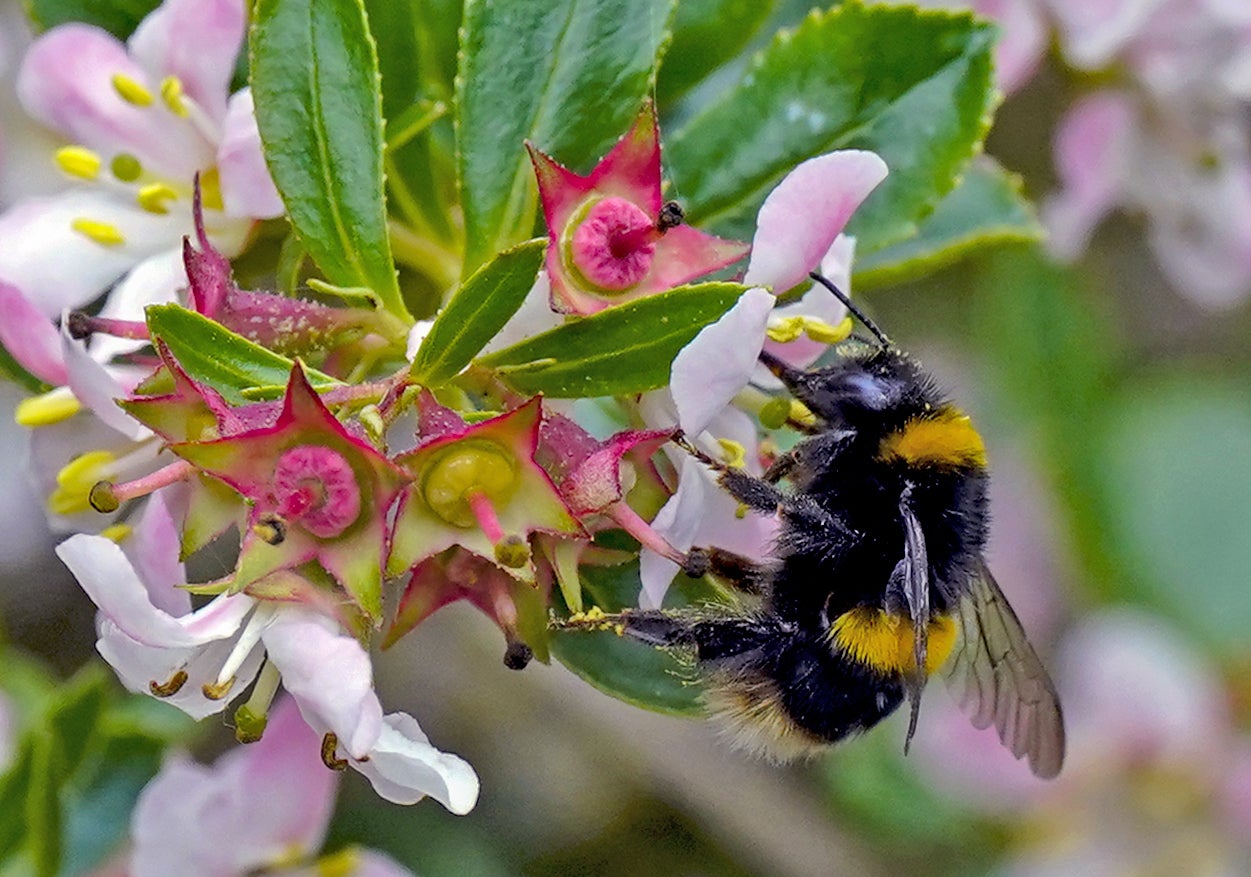Climate change and agriculture halve insect populations in some areas – study
As well as harming the environment, the loss of insects could also harm human health, researchers suggest.

Your support helps us to tell the story
From reproductive rights to climate change to Big Tech, The Independent is on the ground when the story is developing. Whether it's investigating the financials of Elon Musk's pro-Trump PAC or producing our latest documentary, 'The A Word', which shines a light on the American women fighting for reproductive rights, we know how important it is to parse out the facts from the messaging.
At such a critical moment in US history, we need reporters on the ground. Your donation allows us to keep sending journalists to speak to both sides of the story.
The Independent is trusted by Americans across the entire political spectrum. And unlike many other quality news outlets, we choose not to lock Americans out of our reporting and analysis with paywalls. We believe quality journalism should be available to everyone, paid for by those who can afford it.
Your support makes all the difference.Climate change and intensive agriculture have already almost halved the numbers of insects in the most impacted parts of the world, a new study has suggested.
Researchers say their findings highlight the urgent need for action to preserve natural habitats and cut emissions to mitigate climate change.
As well as harming the environment, the loss of insects like beetles, flies, bees, butterflies and grasshoppers could also harm human health, the experts suggest.
Insects have an important role in ecosystems, including pollination and pest control.
Our findings may only represent the tip of the iceberg as there is limited evidence in some areas, particularly in the tropics which we found have quite high reductions in insect biodiversity in the most impacted areas
Joint first author Peter McCann, who conducted the research while completing an MSc at the UCL Centre for Biodiversity & Environment Research, said: “We need to acknowledge how important insects are for the environment as a whole, and for human health and wellbeing, in order to address the threats we pose to them before many species are lost forever.”
The research from UCL is the first to identify that an interaction between rising temperatures and changes in land use is driving widespread losses in numerous insect groups across the globe.
It found the number of insects was 49% lower in areas with high-intensity agriculture – characterised by low crop diversity or high livestock intensity – and substantial climate warming, than in the most natural habitats with no recorded climate warming, while the number of different species was 29% lower.
According to the study, tropical areas saw the biggest declines in insect biodiversity linked to land use and climate change.
Lead author Dr Charlie Outhwaite, UCL Centre for Biodiversity & Environment Research, UCL Biosciences, said: “Many insects appear to be very vulnerable to human pressures, which is concerning as climate change worsens and agricultural areas continue to expand.
“Our findings highlight the urgency of actions to preserve natural habitats, slow the expansion of high-intensity agriculture and cut emissions to mitigate climate change.
“Losing insect populations could be harmful not only to the natural environment, where insects often play key roles in local ecosystems, but it could also harm human health and food security, particularly with losses of pollinators.
“Our findings may only represent the tip of the iceberg as there is limited evidence in some areas, particularly in the tropics which we found have quite high reductions in insect biodiversity in the most impacted areas.”
The researchers analysed a large dataset of insect abundance and species richness from areas across the world, including three-quarters of a million records for nearly 20,000 insect species.
They compared insect biodiversity in different areas depending on how intensive agriculture is in the area, as well as how much historic climate warming the local area has experienced.
The researchers also found that in areas of low-intensity agriculture and substantial climate warming, having nearby natural habitat buffered the losses.
Where 75% of the land was covered by natural habitat, insect abundance only fell by 7%, compared to a 63% reduction in comparable areas with only 25% natural habitat cover.
Many insects rely on plants for shade on hot days, and therefore a loss of natural habitat could leave them more vulnerable to a warming climate.
The researchers warn that insect declines due to human influences may be even greater than their findings suggest as many areas with long histories of human impacts would have already seen biodiversity losses before the start of the study period.
Additionally, they did not consider the effect of pollution.
The study is published in Nature.